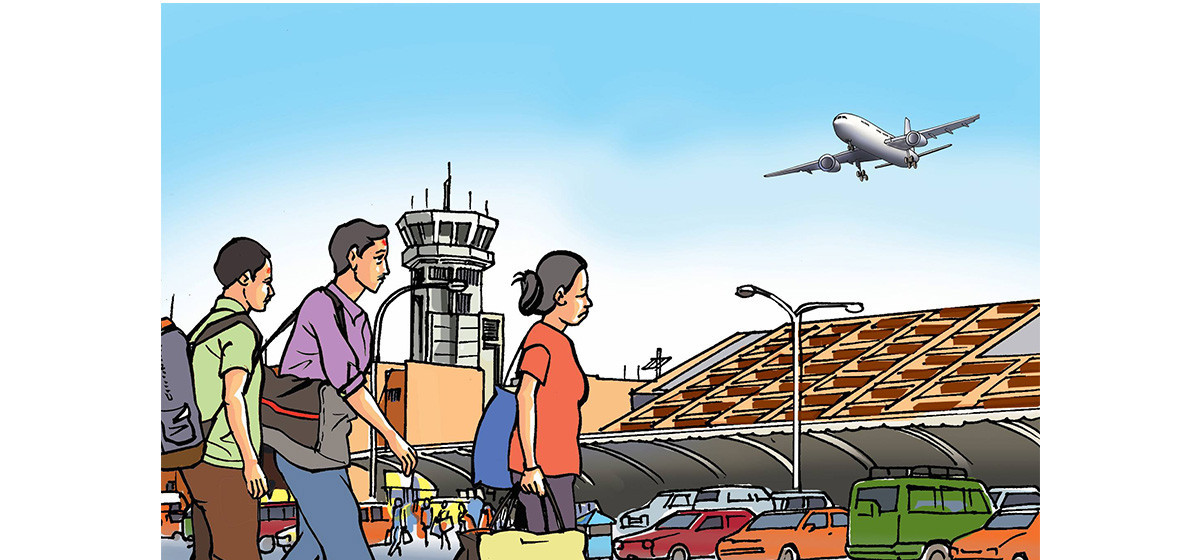
OR
Business as usual not sufficient to achieve middle income status by 2030: WB
Published On: November 2, 2018 07:21 AM NPT By: Republica | @RepublicaNepal

KATHMANDU, Nov 2: Nepal can achieve growth rates of at least 7 to 8 percent that is imperative to become a middle income country by 2030 only if it shifts its remittance-led and consumption-based growth to one that is investment and productivity driven, according to the World Bank Group.
Releasing the Nepal Development Update (NDU), a report produced twice a year to report on the state of Nepal’s economy and to examine specific policy issues of immediate importance, on Thursday, the World Bank Group cautioned that business as usual will not be sufficient for accelerating growth to achieve the middle-income-country status by 2030.
The NDU, which focuses on maximizing finance for development in this edition, recommends the government to prioritize a number of reform initiatives to crowd in private sector for the investment as well as other possible sources which will be critical for accelerated growth.
The government targets a 10-percentage-point increase in investment rate by 2021 to achieve these levels of growth.
The report has recommended that the government improve competitiveness of the private sector and integrate with global markets, strengthen the financial sector through development of long-term financing instruments, and strengthen the framework for infrastructure finance, including public private partnerships (PPPs).
“Selected priority reforms to crowd in the private sector are a must, along with a strong emphasis on increasing firm competitiveness and exports,” said Kene Ezemenari, World Bank Senior Economist and author of the update, addressing a ceremony to release the report on Thursday.
“Promoting financial inclusion, developing long-term financing to invest in infrastructure, strengthening public investment management and public private partnerships (PPP) are the key priorities for Nepal to position itself as a relevant global player,” she added.
According to the report, Nepal’s ability to integrate into the global markets is hampered by negligible Foreign Direct Investments (FDIs) over the past several years. It also underlined the need for transformative change in its FDI environment. “This FDI will generate funds, support innovation and propel skills development. This, in turn, requires a revamped legislative and regulatory framework to facilitate both foreign and domestic investment,” the report added.
Some other recommendations for the government to open up sources of financing include enacting of the Private Public Partnership (PPP) law, developing a pipeline of PPPs, easing restrictive policies on borrowing from foreign lenders, engaging foreign investors and deepening capital markets.
Also speaking at the program, Minister for Finance Yuba Raj Khatiwada, said that the new development model for a ‘Prosperous Nepal, Happy Nepalis’ aims at achieving faster growth through higher levels of investment, productivity, and effective public institutions that pool private resources.
“The government is already working on policies and reforms to strengthen the investment ecosystem, create a suitable climate for FDI and encourage the private sector to achieve their productive potential. An international investment summit to capitalize on development of industries has been planned for March, underlining our commitment to the private sector,” added Khatiwada.
You May Like This

Nepal Business Gabfest 2017 concludes
The Nepal Business Gabfest 2017 concluded on Friday at Thames International College with the participation of more than 600 students... Read More...

Green business
Social Enterprises refer to organizations that enhance human and environmental wellbeing through commercial strategies ... Read More...

Got a social media following? You can turn it to a business. Really
What you’re already doing at a personal level isn’t that different from a commercial one. In fact, you’re already posting... Read More...



Just In
- Exploring opportunities and Challenges of Increasing Online Transactions in Nepal
- Lack of investment-friendly laws raises concerns as Investment Summit approaches
- 550,000 people acquire work permits till April of current fiscal year
- Fixing a win by outlawing dissent damages democracy
- MoHP cautions docs working in govt hospitals not to work in private ones
- Over 400,000 tourists visited Mustang by road last year
- 19 hydropower projects to be showcased at investment summit
- Global oil and gold prices surge as Israel retaliates against Iran










_20220508065243.jpg)


Leave A Comment